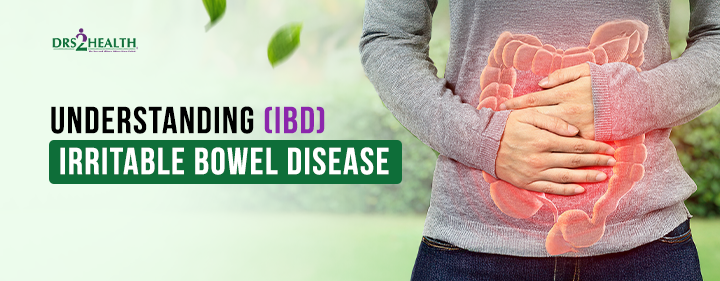
May 15, 2025
Food Allergies in Children and Adults: Signs, Testing, and Treatment Options.
347-843-0789
doctors@doctorstohealth.com

Irritable Bowel Disease (IBD) is a chronic condition that affects the digestive tract, causing persistent inflammation, pain, and discomfort. It’s often confused with Irritable Bowel Syndrome (IBS), but unlike IBS, IBD leads to physical damage in the intestines. The two primary types of IBD are Crohn’s disease and ulcerative coliti both of which can significantly impact daily life.
Although the exact cause of IBD is unknown, experts believe it results from a combination of genetic predisposition, an overactive immune response, and environmental factors such as diet and stress. If you have IBD, you may experience:
–> Persistent abdominal pain and cramping
–> Frequent diarrhea, sometimes with blood or mucus
–> Chronic fatigue and weakness
–> Unintentional weight loss and malnutrition
–> Reduced appetite and nausea
–> In severe cases, fever and joint pain
These symptoms can come and go, with periods of flare-ups followed by remission, making it a challenging condition to manage.
Diagnosing IBD requires a series of tests, including blood work, stool analysis, endoscopy, colonoscopy, and imaging scans like CT or MRI. Early detection is crucial for preventing complications. While there’s no known cure, several treatment options help manage symptoms and improve quality of life.
–> Medications: Anti-inflammatory drugs, corticosteroids, immunosuppressants, and biologic therapies to reduce inflammation and immune overactivity.
–> Diet & Lifestyle Adjustments: Identifying and avoiding food triggers, eating nutrient-rich meals, staying hydrated, and managing stress through mindfulness or therapy.
–> Surgery: In severe cases where medication isn’t effective, removing damaged sections of the intestine may be necessary.
IBD doesn’t just affect your digestive system—it can also take a toll on your mental health and overall well-being. Managing the condition requires a holistic approach:
–> Work closely with your doctor to monitor symptoms and adjust treatments as needed.
–> Maintain a food diary to track what aggravates your symptoms.
–> Prioritize self-care, whether through gentle exercise, meditation, or support groups.
–> Stay informed and connected—there are many online communities and resources for people living with IBD.
If you’re experiencing ongoing digestive issues, don’t dismiss them as minor discomforts. Seeking medical attention early can help you get the right diagnosis and treatment, allowing you to live a fuller, healthier life despite IBD.
Take Control of Your Health Today! Consult Us Now.
If you or a loved one are struggling with IBD symptoms, don’t wait.

Leave a comment